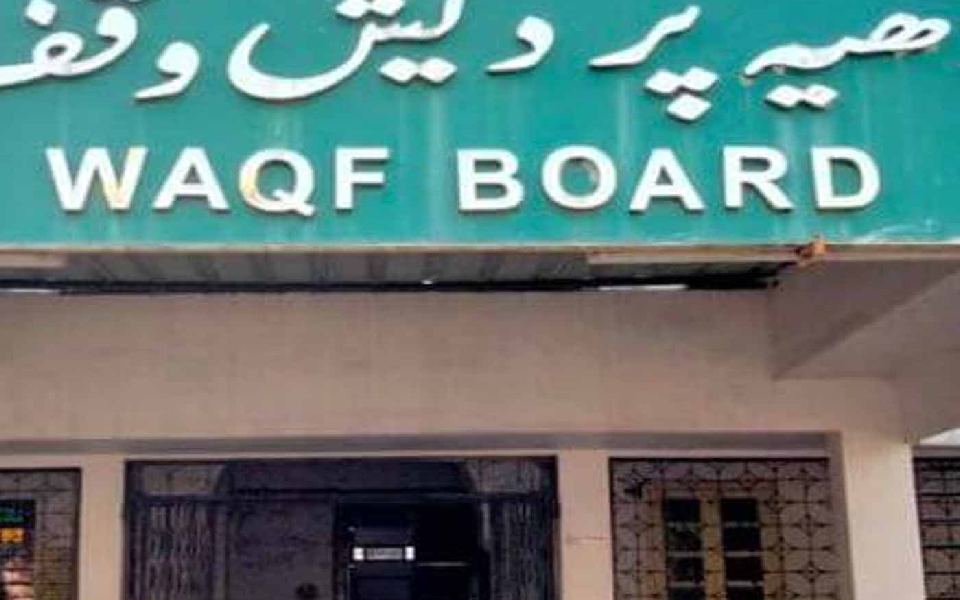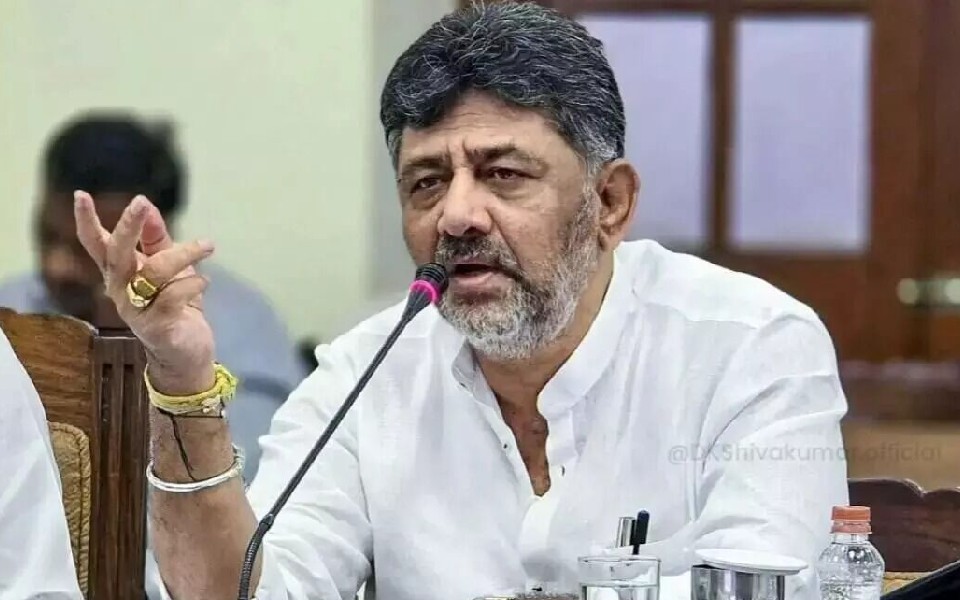Wayanad (Ker) (PTI): Congress leader Rahul Gandhi on Sunday accused the ruling BJP at the Centre of attempting to restrict the tribal communities to the jungles and deny their status as original owners of the land by calling them "Vanvasi" instead of 'Adivasi'.
The Wayanad MP reiterated the issue which he had raised a fews days ago in Rajasthan while addressing a party rally where he had said that the BJP "insults" the tribal community by calling them "Vanvasi" instead of Adivasi and snatches away their forest land to hand it over to industrialists.
Today, after inaugurating the HT Connection at Dr Ambedkar District Memorial Cancer Centre at Nalloornad in Mananthavady area of Wayanad district of the state, Gandhi alleged that there was a "perverted logic" behind calling tribals as vanvasis.
"It is to deny that you (tribals) are the original owners of the land and also restrict you to the jungle.
"The idea is that you belong in the jungle and should not leave the jungle," he said.
The Congress leader said that this ideology was not acceptable to his party as the word vanvasi was a "distortion" of the history and traditions of the tribal communities and an "attack" on their relationship with the country.
"For us (Congress) you are Adivasi, the original owners of the land," he said.
Gandhi further said that since Adivasis are the original owners of the land, they should be given rights to the land and forests and "be allowed to have an imagination to do whatever they want".
They should be given all the opportunities, to education, jobs, professions, etc, that is given to everyone else in the country.
"You (tribals) should not be restricted or categorised. The entire planet should be open to you," he said.
Gandhi said that the word Adivasi means a particular wisdom, an understanding of the environment of the earth we live on and a relationship with the planet.
He also said that the words 'environment' and 'environment protection' have become fashionable now after modern society burned down forests and caused pollution.
However, Adivasis have been talking of protecting the environment for thousands of years. "So we have a lot to learn from you," he said.
Regarding the cancer centre, the Congress leader said he hoped that the new electricity connection would resolve the problems faced by doctors and patients due to the frequent power cuts in the area.
He said he was happy to provide Rs 50 lakh from the MPLADS fund for the same and added that the hospital will get an additional Rs 5 crore as a result of the good work done by the officials of the district.
"I am confident it would be used productively," he said.
At the event he also mooted the idea of having mobile breast cancer screening units which can go to homes and screen women for the disease.
He suggested the idea saying that he came to know that a lot of women here were being diagnosed with breast cancer.
"Having mobile screening units will help us catch the disease early and save their lives," he said.
Later in the evening today, he would be travelling to Kozhikode district to lay the foundation stone of the Community Disability Management Center (CDMC) at St. Joseph High School Auditorium in Kodenchery there.
After that, around 10.30 PM, he is scheduled to depart for Delhi from Calicut International airport.
Gandhi arrived in Kerala on Saturday for a two-day visit, his first after being reinstated as the MP of Wayanad.
Let the Truth be known. If you read VB and like VB, please be a VB Supporter and Help us deliver the Truth to one and all.
Waqf, a pious endowment in Islamic law is rooted in the teachings of Prophet Muhammad (PBUH). A companion Abubakr Siddiq (RA) purchased and assigned the land for construction of mosque of Prophet in Madina. The Quranic revelation “You will not attain unto piety until you spend of that which you love”.
The messenger of Allah said, “when a human being dies his deeds end except for three: ongoing charity, beneficial knowledge or a righteous child who prays for him”. It has encouraged Muslims to dedicate wealth for good cause like Waqf.
Concept of Waqf
The concept of waqf in Muslim law is a permanent dedication of properties for religious, charitable and pious purposes. The word waqf comes from the Arabic word which means to tie up, stoppage or detain. The movable and immovable assets are dedicated unconditionally to divine and must be irrevocable. The donor is called a Waqif the Waqif appoints a Muthavalli or trustee to manage the property. The usufruct of property is utilised for the specific purpose for which it is dedicated or for the benefit of the destitutes. Once an asset is dedicated to the divine it cannot be sold transferred hypothecated or given as a gift.
Auqaf in India
The idea of waqf dates back to the Delhi sultanate when Sultan Muizuddin Sam Ghour dedicated two villages in favour of Jamia Masjid Multan. In Mughal rule there was no centralised management of waqfs. They are managed by individually appointed trustees under the supervision of local Imams. He was accountable to regional khazi. The law of waqf was codified under British rule. “Musalman Waqf Validating Act 1913”, “Musalman Waqf Act 1923” were passed. The “Shariat Application Act 1937” notified that waqf properties comes under Muslim personal law. After independence Waqf Act 1954 was enacted for the entire country except the state of Jammu and Kashmir. Further a comprehensive Act was brought in force in the year 1995. Adjudication of waqf litigations by the waqf Tribunals was introduced. There after it was further amended during 2013 providing representation to women in the waqf board, multi member waqf Tribunals and the alienation of waqf properties is considered as non bailable and cognizable offence with up to 2 years rigorous imprisonment.
Management of Auqaf in Karnataka
During Vijayanagar, Bahamani, Adil Shahi, Tippu and Wodeyar's rule, numerous charities and endowments were made to Hindus and Muslims. The religious endowments of Hindus and Muslims were managed as per the provisions of The Mysuru Muzrai Manual 1934. During 1974 the state government decided to transfer these waqf properties to the waqf Board for their management under Waqf Act 1954.
Abolition of Zamindari System
Consequent to the abolition of Zamindari system Karnataka Inam Abolition Act 1955, Karnataka certain Inams Abolition Act 1977 were passed. Consequent to the 73rd amendment to the constitution Karnataka Land Reforms Act 1974 was enacted. Due to these enactments more than 79,000 acres of notified waqf properties were granted to the Inamdars and tenants out of 1.7 lakh acres in the state.
Waqf is always a Waqf
Honourable supreme court of India in Syed Ali and Others V/S Andhra Pradesh Waqf Board ordered on 18/01/1998 that “Waqf is always a Waqf” and the grant of Patta in favour of Mokhasadar under the Inam Act does not in any matter, nullify the earlier dedication made of the property constituting the same as waqf.
The Karnataka State Board of Auqaf sought clarification from the state government regarding applicability of Karnataka Religious and Charitable Inam Act, Karnataka Certain Inams Abolition Act 1977 and Karnataka Land Reforms Act 1974 to the waqf properties in view of the aforesaid Supreme Court judgement. The then Secretary to government Minority Welfare Department in his letter dated 27/07/2017 sought the opinion of the Law Justice and Human Rights Department. The said department clarified that the properties which the State Government claims to have vested in the government by virtue of Inam Abolition Laws or Land Reforms Act have no juridical significance. In view of the interpretation of waqf made by Honourable Supreme Court of India in its judgement reported in AIR1998 SC 972, Law department is of the opinion that once a property held to be Waqf property, in such an event there is no scope for application of either Inam abolition Laws or land reforms Act.
The State Government in its letter no MWD118WES2017 dated 19/12/2017 directed the Karnataka State Board of Auqaf to recover the Waqf lands acquired by individuals as well as the groups and to take legal action as per the provisions of the waqf Act 1995 (Amendment) Act 2013. The Board requested the Regional Commissioners and Deputy Commissioners in the State to restore the waqf properties affected under The Inams and Land Reforms Laws. Accordingly, the Tahsildars initiated to issue notices to such grantees and noted as “Waqf Property” in the record of rights of such properties. Many of such grantees have assailed the mutations effected by the Tahsildars. The Honourable High Court of Karnataka has issued directions to the Tahsildars to issue notices, hear them and then take the decision.
Now the state government has decided not to issue any notices which is obviously against the decision of Honourable Supreme Court of India and the clarification issued by the Law Department. Lest there is serious social, political and legal implications inherent in the implementation of orders of Honourable Supreme Court. Since 1995 to date the Inamdars and tenants have sold the properties, some of the lands are converted to non-agricultural purposes, residential lay outs have come up and commercial buildings are in use. The state government has to ponder over the issue with legal luminaries, Waqf Board authorities, senior bureaucrats and social scientists and come out with an acceptable solution in the interest of lasting peace in the society.
This article is written by Mujibullah Zaffari, Former Chief Executive Officer, Karnataka State Waqf Board.





